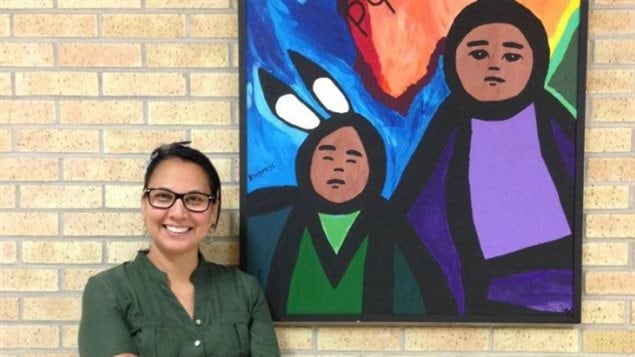They call it the ‘Nobel prize of teaching’ and Saskatchewan teacher Belinda Daniels is one 50 teachers worldwide shortlisted for it.
The $1 million USD Varkey Foundation Global Teacher Prize recognizes exceptional teachers making an outstanding contribution to the profession who have “transformed young peoples’ lives.”
“I was pretty astounded,” said Daniels speaking on the phone from her home in Saskatoon. “I got an email, I read it over a couple of times so I could sink in what I was reading. After that I was ecstatic, jumped up and down, I was thrilled, I couldn’t believe I was one of the top 50 finalists.”
ListenDaniels, 42, is not only the first Canadian to be nominated to the prestigious prize but also the first indigenous person.
Passion for indigenous education
She is a Nehiyaw (Cree) from Sturgeon Lake First Nation and teaches indigenous studies, history and the Cree language. Daniels said throughout her teaching career she has taught kindergarteners, high school and university students.
“I believe that teaching should teach freedom, emancipation,” Daniels said. “I believe that teaching should create people who think outside the box.”
And as a First Nations educator who teaches indigenous studies she is particularly thrilled with the new tone coming from Ottawa, said Daniels.
“It looks very promising, from what I’ve seen of Justin Trudeau, he has heart, he has compassion, of course he’s a teacher!” she said.
Daniels said she’s contacted the prime minister on Twitter.
“I can’t wait to have a conversation with him actually,” said Daniels, “and talk about the state of indigenous languages, our language becoming official, we are the biggest [indigenous] nation.”
She also wants to talk to Trudeau about creating new models and new approaches for indigenous education.
“I don’t think what we have right now is working, we still have very low graduation rates,” said Daniels. “To involve indigenous thought, indigenous ways of knowing and being those type of approaches would definitely improve the situation.”
Daniels will find out in March 2016 whether she won the prize.







For reasons beyond our control, and for an undetermined period of time, our comment section is now closed. However, our social networks remain open to your contributions.